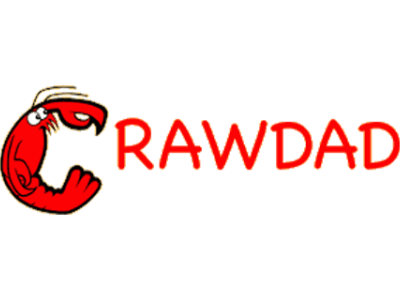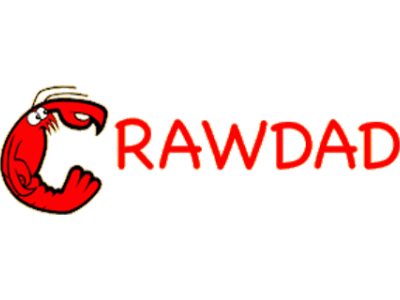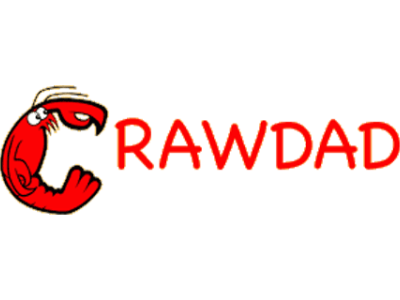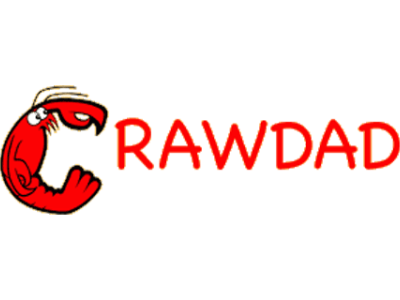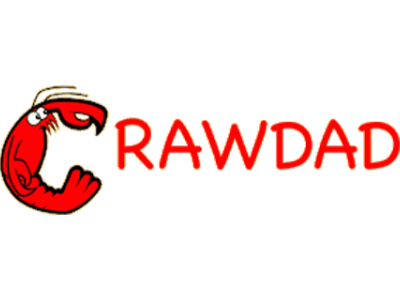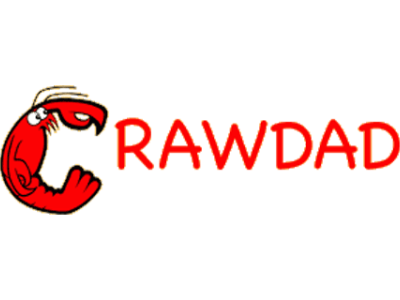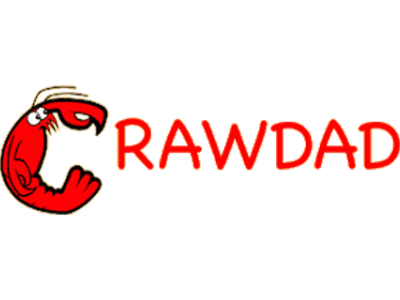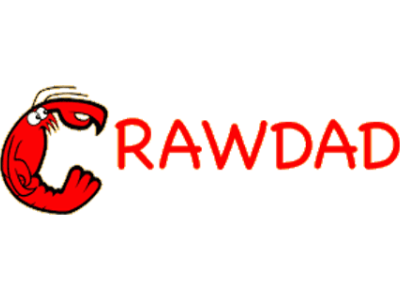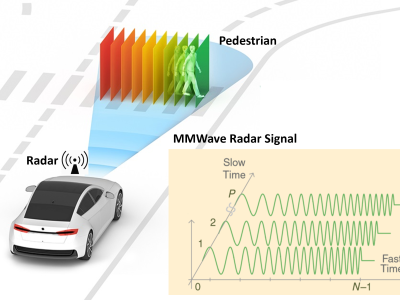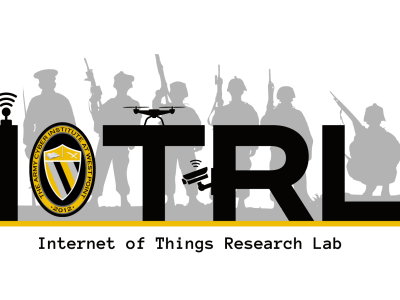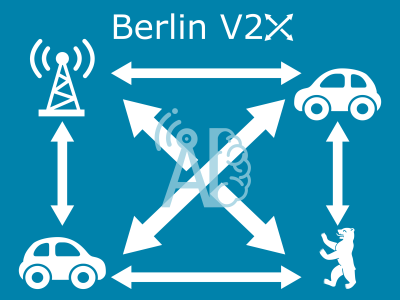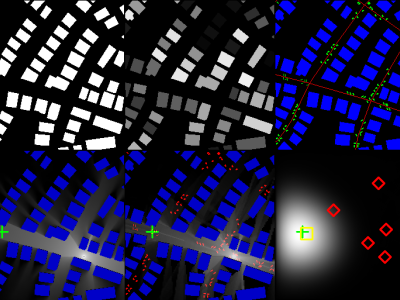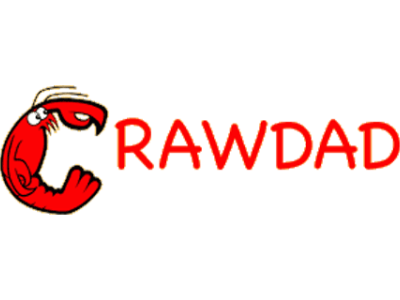CRAWDAD hope/nh_amd
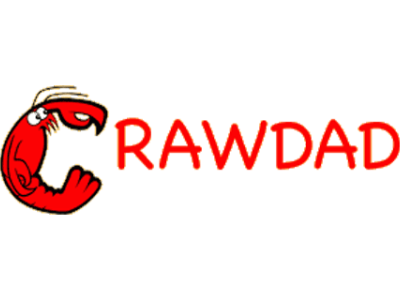
- Citation Author(s):
-
Travis GoodspeedNathaniel Filardo (Johns Hopkins University)
- Submitted by:
- CRAWDAD Team
- Last updated:
- DOI:
- 10.15783/C7W88H
- Data Format:
 128 views
128 views
- Categories:
Abstract
RFID tracking data was collected at The Next HOPE (Hackers On Planet Earth) conference that was held July 16-18, 2010. Conference attendees received active RFID badges that uniquely identified and tracked them across the conference space.
last modified :
2011-03-12release date :
2010-07-18date/time of measurement start :
2010-07-16date/time of measurement end :
2010-07-18collection environment :
Hotel Pennsylvania in Manhattan, New York City, the site of the biannual "Hackers on Planet Earth" (HOPE) conference.network configuration :
This record comes from three days of the conference, by TCPDump from OpenBeacon PoE receivers. Each UDP packet represents one radio packet, as forwarded from the receiver to an aggregation server. Positions may be inferred from the packet error rate at a given receiver, as well as the broadcast signal strength which is included as a field of the packet.data collection methodology :
Data was collected using tcpdump on an aggregation server. The packets exist in their raw state, with no preprocessing of any kind.sanitization :
The only unique information contained within a badge is its serial number, which was optionally correlated with an attendee's name or handle by a social networking site. The database of the social networking site has not been included in this database, and it is believed that no private information was included. Additionally, attendees received badges separately from batteries, being told to insert the battery only if the collection of data was not a problem.limitation :
The packet capture is known to be somewhat damaged -- in particular, the last bzip2 block is corrupt ("file ends unexpectedly") and the contained pcap stream therefore does not parse correctly ("pcap_loop: bogus savefile header"). The aggregation machine was rather violently brought offline (somebody tripped over its power cable during cleanup; happens to the best of us). We thought it better to just release everything as we got it than try any processing to clean it up.Traceset
hope/nh_amd/tcpdump
Packets generated by the badges at The Next HOPE (Hackers On Planet Earth) conference held July 16-18, 2010.
- description: RFID tracking data was collected at The Next HOPE (Hackers On Planet Earth) conference that was held July 16-18, 2010. Conference attendees received active RFID badges that uniquely identified and tracked them across the conference space.
- measurement purpose: User Mobility Characterization, Positioning Systems, Educational Use, Location-aware Computing, Human Behavior Modeling, Energy-efficient Wireless Network, Network Security, Localization, Opportunistic Connectivity
- methodology: We collected three days worth of packets sent by conference attendees badges to the aggregator.
- last modified: 2011-02-22
- dataname: hope/nh_amd/tcpdump
- version: 20100718
- change: the initial version.
- release date: 2010-07-18
- date/time of measurement start: 2010-07-16
- date/time of measurement end: 2010-07-18
hope/nh_amd/tcpdump Traces
- bz2: Packets generated by the badges at The Next HOPE (Hackers On Planet Earth) conference held July 16-18, 2010.
- configuration: The conference badges were sending packets to the aggregation server.
- format: The collection contains the following files. capture**.bz2 : The packet archive itself, split into 33 pcap files and bzip2'd. README : Description of the collection and links to relevant tools. HOWTO_RUN_ME : The commands used to bring up the estimator and the Cassandra bridge. areaspt.txt : A Space Partition Tree file mapping positions onto area name. See localizer/spaceparttree.h for format documentation. readers.txt : A map from reader IPv4 address to its position in space. Coordinates, left to right, are X and Y in meters and Z in floors. The origin is the corner with the hammock space. Y increases towards the operations center. The coordinate system is left-handed.
- description: This is the working directory of the OpenAMD project's estimator from The Next Hope, as well as the complete packet dump for obtained during our collection. The collection starts at Friday 12:23:34.714999 and ends at Sunday 16:04:53.403616. It contains, all told, 200123338 packets. Almost all of these are well-formed packets from TNH badges; there are known to be some TLH badges in there (which the localizer knows how to decrypt) and maybe some surprises. Just for clarity, the aggregator was only ever on the private VLAN for the readers, so there should be no attendee data (i.e. only attendee metadata ^^) in this file.
- last modified: 2011-02-22
- dataname: hope/nh_amd/tcpdump/bz2
- version: 20100718
- change: the initial version
- release date: 2010-07-18
- date/time of measurement start: 2010-07-16
- date/time of measurement end: 2010-07-18
Instructions:
The files in this directory are a CRAWDAD dataset hosted by IEEE DataPort.
About CRAWDAD: the Community Resource for Archiving Wireless Data At Dartmouth is a data resource for the research community interested in wireless networks and mobile computing.
CRAWDAD was founded at Dartmouth College in 2004, led by Tristan Henderson, David Kotz, and Chris McDonald. CRAWDAD datasets are hosted by IEEE DataPort as of November 2022.
Note: Please use the Data in an ethical and responsible way with the aim of doing no harm to any person or entity for the benefit of society at large. Please respect the privacy of any human subjects whose wireless-network activity is captured by the Data and comply with all applicable laws, including without limitation such applicable laws pertaining to the protection of personal information, security of data, and data breaches. Please do not apply, adapt or develop algorithms for the extraction of the true identity of users and other information of a personal nature, which might constitute personally identifiable information or protected health information under any such applicable laws. Do not publish or otherwise disclose to any other person or entity any information that constitutes personally identifiable information or protected health information under any such applicable laws derived from the Data through manual or automated techniques.
Please acknowledge the source of the Data in any publications or presentations reporting use of this Data.
Citation: Travis Goodspeed, Nathaniel Filardo, hope/nh_amd, https://doi.org/10.15783/C7W88H , Date: 20100718
Dataset Files
- HOWTO_RUN_ME.txt (125 bytes)
- README.txt (2.67 KB)
- areaspt.txt (3.27 KB)
- capture01.bz2 (98.38 MB)
- capture02.bz2 (98.35 MB)
- capture03.bz2 (98.29 MB)
- capture04.bz2 (98.1 MB)
- capture05.bz2 (98.2 MB)
- capture06.bz2 (98.3 MB)
- capture07.bz2 (98.64 MB)
- capture08.bz2 (98.37 MB)
- capture09.bz2 (98.55 MB)
- capture10.bz2 (99.11 MB)
- capture11.bz2 (97.73 MB)
- capture12.bz2 (97.96 MB)
- capture13.bz2 (97.71 MB)
- capture14.bz2 (97.16 MB)
- capture15.bz2 (96.64 MB)
- capture16.bz2 (96.71 MB)
- capture17.bz2 (96.62 MB)
- capture18.bz2 (97.1 MB)
- capture19.bz2 (96.07 MB)
- capture20.bz2 (94.63 MB)
- capture21.bz2 (93.14 MB)
- capture22.bz2 (94.44 MB)
- capture23.bz2 (96.41 MB)
- capture24.bz2 (97.4 MB)
- capture25.bz2 (97.95 MB)
- capture26.bz2 (98.37 MB)
- capture27.bz2 (98.48 MB)
- capture28.bz2 (99.08 MB)
- capture29.bz2 (99.66 MB)
- capture30.bz2 (99.51 MB)
- capture31.bz2 (99.4 MB)
- capture32.bz2 (98.61 MB)
- capture33.bz2 (56.61 MB)
- readers.txt (957 bytes)


